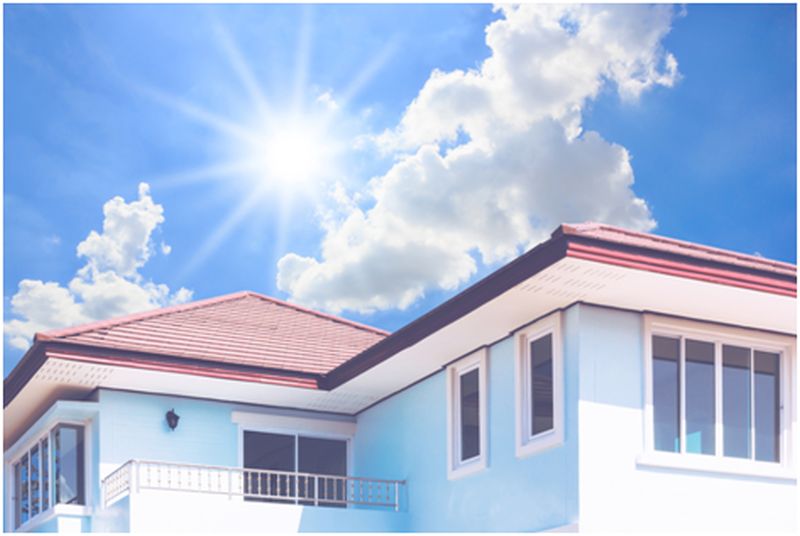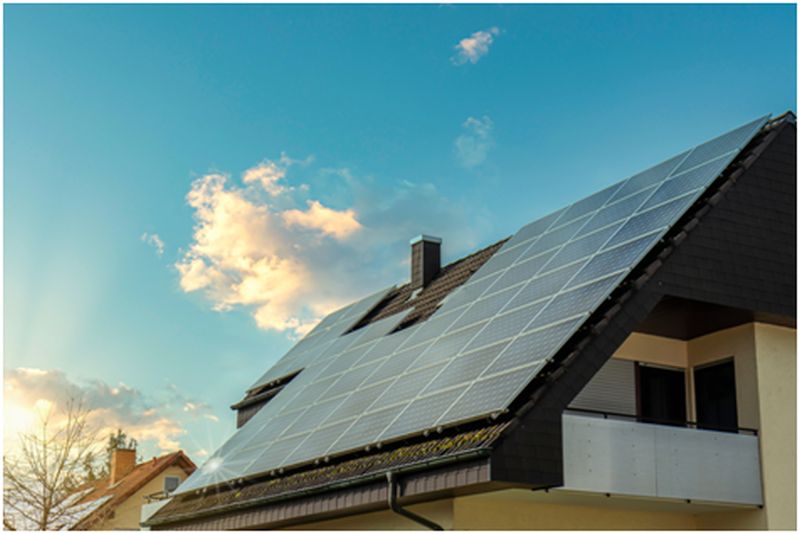Modern homeowners know there are plenty of big benefits to going solar. In addition to the obvious — getting rid of your least favorite bill and helping the planet while you do it — residential solar systems also bring pros, like increased property value and, in some cases, even profitability. Throw in a few high-value tax credits and you’ll see why going solar is such an attractive option to many. But solar power is not always the right choice for every property, so going through the following considerations can help you figure out if it makes sense for you.
1. How Much Energy Do You Need?
Since solar systems are generally priced per watt, figuring out your energy usage is a crucial step in determining the size and, most importantly, the cost of your system. Although it seems daunting, figuring out how much energy you use is surprisingly easy as long as you’ve been paying your utility bill for a long period of time or can estimate your usage by what appliances and electronics you need/use.
1) Look at your monthly electricity bill
Paying close attention to how much energy you use on average each month. Remember that, depending on your home’s heating, cooling and the climate where you live, your energy usage might fluctuate wildly throughout the year. Therefore, it’s important you start with a system that can handle those high-usage periods. Add up your monthly kilowatt hour (kWh) usage and divide by 12 to get an average for the year.
2) Use a load calculator
There are plenty of awesome resources online to help you determine how much energy you use, such as this energy load calculator. All you have to do is input all your appliances and electronics, from your phone charger to your deep freezer, and the calculator will help you determine how many total watt hours you’ll use per day.
3) Think about your future needs
Although appliances are getting more and more energy efficient, electricity is having a moment as an eco-friendlier option, especially when it comes to powering our cars and home heating systems. If you plan on switching to an electric car or want to trade some gas-powered appliances for electric, keep this in mind when you’re planning your solar setup.
2. Is Your House in the Right Position for Solar?
 Since solar panels rely on direct sunlight to produce energy, they will work better in regions where there’s more direct sunlight. The number of peak sun hours a day your region gets will affect size and placement of the panels. There are other physical parameters you need to consider when planning your installation, such as the shade around your house, the angle of your roof and others. Although solar power is not the best solution for every property, we always recommend talking with a solar pro even if you think your home is not the ideal candidate. With new ground-mount solar panels and other options, it’s possible to equip even the most traditionally challenging properties with a solar solution that makes sense.
Since solar panels rely on direct sunlight to produce energy, they will work better in regions where there’s more direct sunlight. The number of peak sun hours a day your region gets will affect size and placement of the panels. There are other physical parameters you need to consider when planning your installation, such as the shade around your house, the angle of your roof and others. Although solar power is not the best solution for every property, we always recommend talking with a solar pro even if you think your home is not the ideal candidate. With new ground-mount solar panels and other options, it’s possible to equip even the most traditionally challenging properties with a solar solution that makes sense.
3. Do You Want to Be on the Grid or Off?
There are a variety of different types of solar systems out there, including options that work completely independently and are tied to your local utilities grid. Which type you choose depends on your property, needs and budget. The best solar installation companies will be able to provide you with all the available options and pair you with the right one.
1) Grid-Tied
If your home is connected to the local power grid, a grid-tied solar system is the best choice. With this option, solar panels are tied directly to the power grid. One major benefit of this type is you can sell the power your system generates back to your local utility to offset the cost of your system. This is the cheapest option with the fastest payback.
2) Off-Grid
Ideal for remote areas and undeveloped lands, off-grid systems cost more because they don’t rely on the existing grid. Instead, the panels charge a solar panel battery bank that, in turn, powers your home. Though it’s more expensive, many people prefer this option because it’s completely self-sufficient and does not rely on utility power at all.
3) Grid-Tied with Battery Backup
Ideal for anyone with unreliable power and critical appliances, the grid-tied with battery option is a smart choice. This is the most reliable system, but it’s also the one that typically costs the most. With this type of system, the solar panels send energy into the grid and the battery bank powers appliances when it’s not available.
4. What About the Tilt and Angle of Your Roof?

A solar system’s orientation and inclination can have a massive impact on its ability to produce energy, so it’s definitely something you want to consider. When determining the positioning of your panels, your installers will focus on placing them so they absorb the most sunlight year-round. There is no one-size-fits-all formula to what angle or placement is best, as it depends on where you live and the position of your home. Note that not having the ideal angle is by no means a deal-breaker — in fact, you can often create the right angle with solar racking and mounts — but it may impact the size, cost and placement of your panels.
5. What Incentives Do You Qualify for?
If you’ve been researching solar panel systems, you probably already know the costs can be significantly offset by tax credits, rebates and other incentives. For example, if your system is installed before January 1, 2023, you qualify for a 26 percent tax credit from the federal government. On top of that, many states, cities and municipalities offer additional incentives that can help cover costs of equipment and installation.
Although there are many key things to consider before deciding whether or not to go solar, the benefits make the process totally worth it for many homeowners. Note that it’s well worth your while to speak to a solar installer or expert for custom advice. They will be able to tell you the best size, type and solution for your specific needs so installation is simple and painless.
Article Submitted By Community Writer




